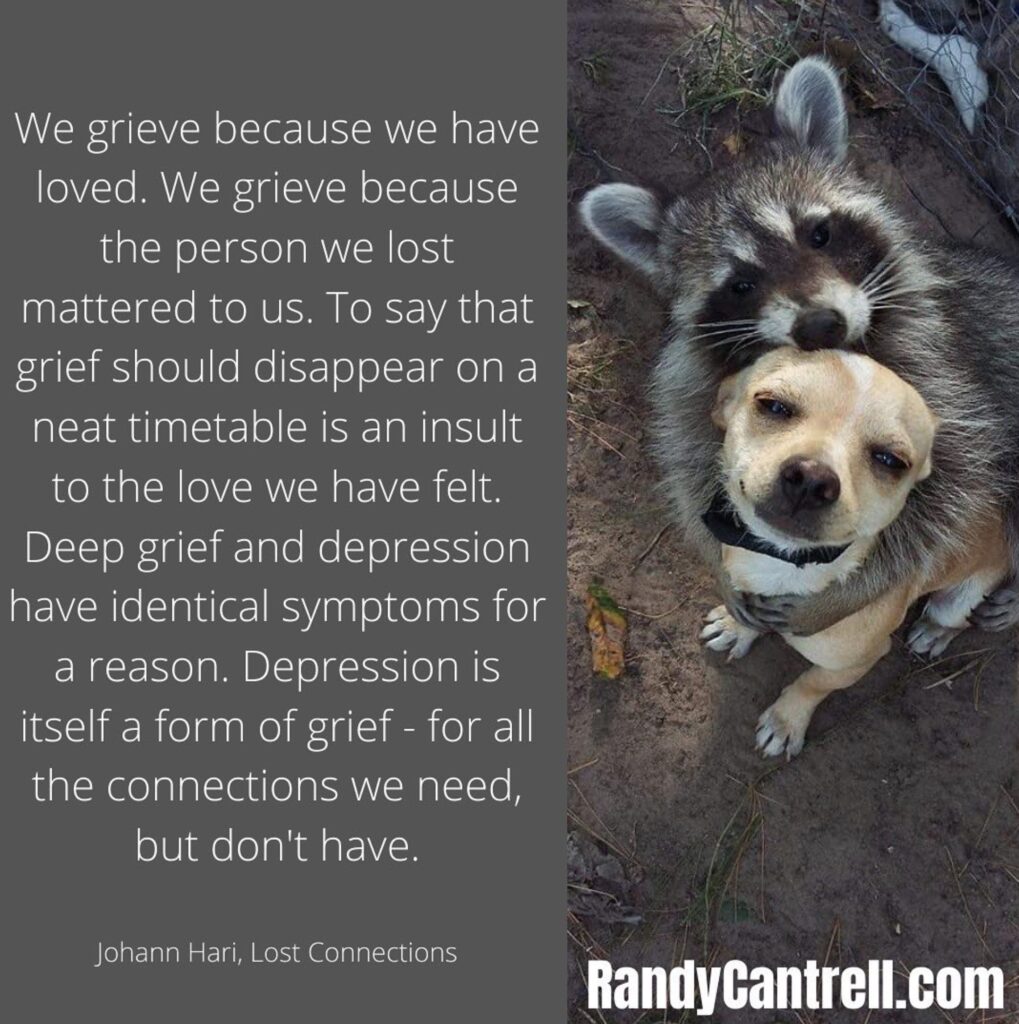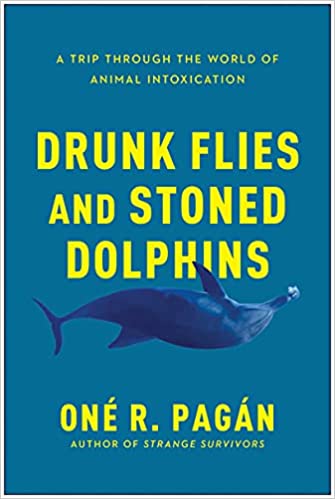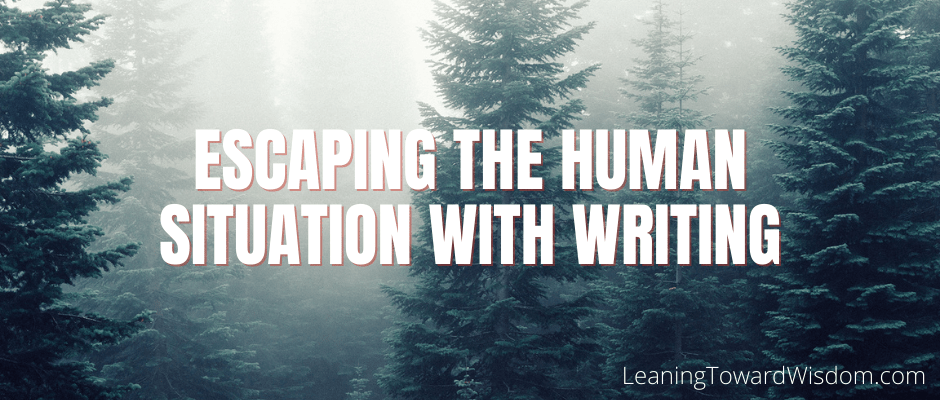Podcast: Play in new window | Download (Duration: 43:59 — 40.3MB)
Subscribe: Apple Podcasts | Spotify | iHeartRadio | Email | RSS | More
“Writing is a form of therapy; sometimes I wonder how all those who do not write, compose, or paint can manage to escape the madness, melancholia, the panic and fear which is inherent in a human situation.”
― Graham Greene, Ways of Escape
The troubled writer is more than a stereotype. Many writers, and other creatives, are vexed souls looking for solace in the art like King Saul longing for the music of David.
Cause and effect can be tough to figure out. We shouldn’t assume a correlation between the degree of vexation and creativity. I rather think we’re all vexed and we’re all creative. Some of us lean more toward one than the other. The human situation is both universal and uniquely individual.
The Graham Greene quote is from a book entitled, Ways of Escape. It’s a terrible book, but the quote seems worthwhile. Maybe Mr. Greene wonders how people who aren’t creative can manage to escape the human condition, but I view it a bit differently – in spite of how I titled today’s show. For me, it’s more about managing (dealing with; coping) the human situation with whatever tools we have. For me, it’s writing and podcasting. In that order. But let’s go ahead and acknowledge the elephant in the room as a Christian. Firstly, it’s about managing the human situation through faith, which includes reading scripture, prayer, worship and the other blessings found only in Jesus Christ. Those actions have eternal consequences so they matter most. Beyond that are other endeavors including leaning on a spouse, as I lean on Rhonda.
Then…there’s writing and podcasting. But there’s also listening to music and reading. This means, at least for me, there’s the consumption of information (learning something worthwhile) and there’s creativity (creating something worthwhile). I suppose I’m always doing both at the same time, but there are some seasons or moments where I’m more focused on one over the other. It’s hard for me to do one without the other though.
Escaping versus managing.
Avoiding versus dealing with it.
Running and hiding versus standing and facing it.
While I understand escaping – in whatever form it takes (running, hiding, avoiding, procrastinating, etc.) – I know it’s foolish to lean into it. Better to face it, sort it out as best we can, and put in the work to figure out what our best options may be.
I’m helping a person who is faced with some realities that he’d rather not face. I get it, but I also know it’s not helpful to run. He’s scheduled this time with me to talk. Hoping to give him more sense of control – after all, it is HIS life, I say, “You’re in charge of the conversation. Take this wherever you’d like. I’m here for you.” Silence. He shifts nervously in his chair for what seems like minutes. I say nothing, letting the silence just sit on top of us for a bit. It’s clear he’s struggling with this flight response – I’m hoping he’ll resist it and do the work to face it. “You’re in control of this. Do whatever you want,” I say. More silence. More shifting in his chair. He works up the words, “I want to end this call.” He decides to run and I let him. I simply say, “Okay” and then end the call. It happens. People frequently decide to run. The problem is, the thing we’re running from almost always catches us and overtakes us. I’ve yet to encounter a situation in my life where standing and fighting wasn’t the better alternative. Sometimes the fight is nothing at all. It’s simply staring down the problem. Other times it’s a vicious knife-like fight where you’re left bloody and exhausted. But even those fights are worthwhile compared to the alternative of running. None of us enjoy agony, but I suppose all of us prefer an abbreviated version a prolonged version. Running prolongs everything bad!
Besides, I’ve lived long enough to know that the man I’m attempting to help may stop running. Maybe not. It’s up to him. Not me. When and if he stops running I’m confident he’ll find a path forward. We come to things when we come to them. I’m always working hard to come to things as quickly as possible because I’m lazy and I’d like to avoid as much pain as possible. 😉
Do you really want to escape the human situation or would you rather improve yours?
Life isn’t likely that binary though. Sometimes we read novels, watch TV shows and movies, listen to music, work in the yard, pursue our hobbies and engage in other activities so we can get our minds off of one thing and onto something else for a while. It’s more of a respite than an escape. A respite is defined as “a short period of rest or relief from something difficult or unpleasant.” That’s not running and hiding. That’s more buying time as we process. Sure, it could become a habit and turn into a full sprint run-away tactic, but hopefully, we don’t lean into that.
That’s what happened in our life in the early fall of 2018. We encountered a situation that was difficult. Running from it wasn’t an option. It was too important. Too much was at stake. Wishing it was different wasn’t going to be an effective strategy. Is it ever?
We asked questions. We leaned heavily into our curiosity hoping to gain some insights and understanding. Within days some things became more clear while other things grew muddier and muddier. Then, we escaped. Physically we went away to a change of scenery. Not to hide, but to sort things out hoping lots of hiking and time in nature would help us process all our thoughts and feelings. It seemed the smart move. Turns out, it was a smart and wise move. For days we walked and talked. And walked and talked. And prayed. And prayed some more. We cried. And cried some more. Like injured or wounded animals in the wild, they lean on their surroundings to heal. It felt right to us to give that a go. It helped.
Have you ever watched an MMA (mixed martial arts) match? Typically both fighters have some proficiency in some form of martial arts. According to KarateCity.org, there are more than 170 forms of MMA. Lots of different tactics and strategies. During any given match you’ll likely see one fighter gain a momentary advantage. If they’re able, the other fighter will do whatever they can to escape the moment. They don’t want to get knocked out, choked out, or submitted with some inescapable hold. It’s about escaping the moment where they might lose the fight. That’s not hiding or running. That’s doing whatever you can to prolong the fight so you have some hope of victory. It’s an attempt to escape defeat!
Rhonda and I did that in 2018. Momentary escape. Time spent building ourselves up emotionally and spiritually for the fight ahead. Neither of us had the strength at that moment to handle the situation so the momentary retreat served us well.
You’ve experienced this. It happens when you’re in the shower. Or driving the car. Or not thinking about the elephant in the room. Suddenly, something comes to you. When you least expect it. Likely because you’re not looking for it. It appears. An answer. An idea. A thought. A feeling. One you leverage to move you forward. One you may have never experienced had you not – at that moment – avoided concentrating on the issue. Intentionally or unintentionally. Doesn’t really matter.
Sudden Situations, Lingering Situations
While thinking about my own behavior – and trying to learn how I might handle things better in the future – I realized there have been 2 distinctly different human situations. One is that sudden kick to the gut event. The thing you didn’t see coming. Those blindsided hits. The other are those slow, ongoing, daily grind situations that you’d like to change.
Our 2018 event was a sudden situation. Mostly.
I’ve had other situations, usually professionally related, that were more lingering, daily grind-it-out kind of things.
Neither is comfortable. Both are situations we’d rather not experience, but they’re also very different.
Boxers or MMA fighters jog around the ring or cage feeling one another out. They know they’re facing an opponent – a lingering situation. Well, they hope it lingers for themselves and they hope it ends abruptly for their opponent. So do we. With our life situations. We’d like to end the lingering situation for ourselves, but we’re careful to keep moving, watching our opponent’s every move. We may go round after round with no real punches thrown. It can be mentally exhausting – even physically exhausting. Thinking about how we hate this circumstance. Thinking of how we’d rather be somewhere else. Doing something else.
The rub is…we could do something. We don’t have to keep jogging around the ring, or dancing around the cage. We could go on the offense. Attack the opponent.
Some do. Some don’t. Ever wonder why? Yeah, me, too.
Wiring. Confidence. Preparation. There are likely lots of ingredients that lead a person to go on the attack. Or that lead others to retreat even when the opponent isn’t really attacking. I suspect it all boils down to fear. Fear likely drives us to attack our opponent in hopes of gaining an advantage before they do. Or fear drives us to retreat fearful they’ll catch us.
I’ve seen MMA or boxers dive headlong into the fray with reckless abandon hoping their frenetic attack will result in success. While it’s entertaining to watch, I’m certain I’d never do that. I’d be much more comfortable with a more methodical, but persistent forward approach. Jab, jab, jab, jab followed by a flurry of punches, then back off to regroup…unless you sense you’ve stunned the opponent. That’s where you’ve got to have a heightened awareness of the situation. Any sign of an advantage should result in a more intense effort to end this fight and knock this opponent out. When the opponent is on his heels, time to go all in and keep up the sustained attack.
I’d venture to guess that most of us react to sudden situations. We’re less proactive than I suspect we know we should be. For example, the fighter who doesn’t attack but remains on the defensive is suddenly caught with a good punch or take down. Now, panicked, he scrambles to respond. Those moments where he may have been debating with himself, “Should I go for it? Should I wait?” – they’re gone now. Now he’s in trouble. Big trouble. Desperate to avoid utter defeat he wriggles, he punches, he blocks, he twists, he rolls. Whatever he can do to avoid being beaten. Sometimes, if he’s skilled enough, he can escape. Other times, he’s going to lose. He waited too long. He played it wrong.
I know that feeling. Life sometimes wins. Because sometimes I hesitated in going on the attack, hoping to avoid the fight. Or hoping life would retreat. It doesn’t. Ever. I know this. But the mind is a funny thing. And not always funny, haha. Funny stupid. Funny foolish.
We dance with life thinking that more time will improve our chances of success. Whatever our view is of winning. But life doesn’t often work that way. Buying time merely hoping for random chance to play to our favor. Like we talked about last week – random chances do happen, but this much seems true, when we’re putting some actions forward. Hopefully, meaningful and significant actions. Life has surely taught most of us that doing something is usually better than doing nothing. Unless, of course, the thing we do is foolish. Hence, our show – this podcast – with a focus on leaning toward wisdom! 😉
That space between a sudden situation and a lingering one – where it’s really yet to be established – seems an ideal spot to survey the opponent. To buy some time, dance the ring and keep your eyes peeled for signs of another sudden attack. Time to gather yourself and figure out what your first punch might look like. Time to spot the opponent’s tendencies. To see when they drop their guard. To spot how you can best leverage what you’re good at to strike a defeating blow!
But when the data has been gathered, it’s time to move in. Time to go on the attack. But when?
Well, that’s impossible to say because you’re the one in the ring or the cage. You’re the one who knows what you know. Who sees what you see. Who feels what you feel. What are you seeing? Feeling? Believing? And can you trust it? Others can help you. People can serve us to help us see things more clearly. But even our closest confidants can’t do it for us.
Some weeks ago a friend got the news. His closest friend had been in a car wreck. The friend was hurt, but would be fine. The friend’s wife of about 10 years…was not okay. She was killed. Instantly, lives changed. Instantly, a human situation knocked some people to their knees causing them to gasp for air. I don’t know how long the grief will endure or what that endurance will look like. To each his own. We have to find our way forward through the tears and sorrow. And it’s uniquely our own experience. Not something anybody should – or can – judge. Some weeks ago I posted this on Instagram.

 Those are the time you’d most like to hide. Fall asleep hoping to wake up to a different – a better – reality. Wishing the nightmare would be over and you’d wake up and things would be fine. But instead, we might be more prone to fall into a deep, dark place where we make an awful situation even worse. It happens when people lean into substances – intoxicants. But evidently, even critters do it. The physical stimulus so powerful we struggle to resist. Feelings so enormously powerful we neglect our own well-being to pursue them. No, I’ve not read this book, but it does seem interesting to me.
Those are the time you’d most like to hide. Fall asleep hoping to wake up to a different – a better – reality. Wishing the nightmare would be over and you’d wake up and things would be fine. But instead, we might be more prone to fall into a deep, dark place where we make an awful situation even worse. It happens when people lean into substances – intoxicants. But evidently, even critters do it. The physical stimulus so powerful we struggle to resist. Feelings so enormously powerful we neglect our own well-being to pursue them. No, I’ve not read this book, but it does seem interesting to me.
Best I can tell, we either cope or attack. We defend or we go on the offense. We manage or we impose change. We overcome or endure. And yes, we either win or lose. We succumb or we celebrate.
It doesn’t feel so cut and dried in my life. Yours?
Sometimes I don’t feel like I won in the moment, but after some time passes, it’s clear that I have won more than I lost. Or it’s clear that my victory is far more sound than the defeat. Sometimes, it’s the realization that my defeat – however bad it may seem – it’s nearly as bad as it might have been. Mostly, I find myself in hindsight being thankful. For the sadness. For the struggle. For the sorrow. For the lessons learned – lessons I wouldn’t have otherwise ever had. Because winning doesn’t teach me much of anything.
Armed with all this sorrow. Armed with all this defeat. Armed with all these times when I wanted to escape instead of fight. I’ve learned some important lessons that I suspect you’ve learned, too.
One, we must always defend.
It doesn’t mean we refuse to trust others. It does mean we guard ourselves against circumstances, choices, decisions and people who don’t care about us being our best. It means against foes, we defend. Always. Amongst friends, we trust. Always. Until evidence proves we should make a different decision. And sometimes, it does. No reason to never trust again. No reason to refrain from being vulnerable with people who care deeply about us, and for us.
Two, we must always fight.
Mostly, ourselves. Our inclination to avoid. To run. To hide. To procrastinate. To retreat.
Part of wise fighting involves surveying the opponent – the human situation. What’s going on here? Where am I most likely to get hurt – or knocked out completely? Protection isn’t just passive observance, but it’s a vital attempt to keep the enemy at bay. To maintain distance by fending them off with our own punches and attacks so we keep human situations on their heels.
I don’t know anything about firearms, but I’ve had plenty of people who do tell me that the best thing a person can do when being attacked is run. I know that seems counter to everything I’ve said so far, but stay with me. In a physical fight it’s a form – an effective form – of fighting. To put distance between you and the attacker. These are sudden situations. Dangerous situations. Situations like the MMA fighter who is suddenly taken to the ground and the attacker is going for a chokehold. You simply have to survive the situation, get back to your feet and live to keep fighting.
Police officers will tell you that if a person is quite a distance away – I don’t precisely how far away – then run. In spite of what you see on TV hitting a moving target with a handgun is very difficult. The greater the distance and the more movement, the more difficult it is. That’s why you see people in TV shows zigging and zagging as they run from a shooter. Time is your enemy so you can’t stall or wait. You cut and run as fast as possible, moving all the while to make it more difficult for the shooter to have an advantage. Because distance is your friend.
Running isn’t the point, but distance is. Distance may be time. Or space. Or both. It’s part of the fighting process.
By the way, I also know from professionals that if you must fight – and the attacker has a weapon, like a gun – you must gain control of that weapon. If you don’t, you’re in high danger. First things first, get control of the attacker’s weapon. Full control. Then beat them senseless with it. 😉
Three, we must always move forward. Even if it means retreating momentarily so we can revive ourselves.
Change. Growth. Improvement.
The computer world knows CGI as computer-generated imagery. Think Pixar. But many TV shows and movies incorporate vast amounts of CGI or virtually produced images that look very real to us. My version of CGI is change, growth, and improvement. It too is very real. It’s always virtually produced first in our mind. We imagine it. We think it. We feel it. We believe it. We act on it and make it happen. We convert it from a creation in our minds to a reality in our bodies.
Or we don’t.
This is the running and hiding we must avoid at all costs. Running and hiding from change, growth and improvement. But I see people do it all the time. And I understand the temptation. We all do.
We think we’re running and hiding from the human situation, but we’re not. We may be completely powerless to alter that. The husband who loses his wife in a car accident must face the reality that she’s gone. But he must also face the reality – in time – that his life continues. Hiding from the circumstance is what it may feel like, but the value is in facing himself. It’s in finding a way forward in his own change, growth and improvement as he figures out how to best navigate this life without her. Nothing easy about it. Especially when you’re attempting to do it with a broken heart.
For me, the creation of a new episode – the writing in a journal, or on a website (like now) – is part of the process. It’s not about escaping the human situation. It’s not about escaping what should be my appropriate response to the human situation. It’s about coping, managing, defending, attacking and dealing with the things life presents every day. It’s about donning headphones in the wee hours of the morning listening to Billy Strings and the boys play, Know It All (or just about anything else).
It’s about firing up a microphone and talking with you. It’s about sharing what I’m thinking and feeling. It’s about communicating and connecting.
I don’t know what your *with* looks like. But you’ve got some *withs*. Things you do to help you manage the human situation. Make sure they’re helpful, not harmful. Constructive and not destructive. Better to write than drink. Better to play music (either on an instrument or through headphones) than to intoxicate. Better to face your reality than to run and hide from it.
Me? I’m gonna stick with things I know I can trust in. God. Prayer. The Bible. That’s the foundation of it all. Followed closely by my reliance on my wife, Rhonda. Then it’s writing, creating, podcasting, sorting out thoughts by communicating and connecting with you. Along the way, there’s always music. Lots and lots of music!

P.S. Here’s a t-shirt you may want or need. Click the image. It’s not even an affiliate link. 😉

